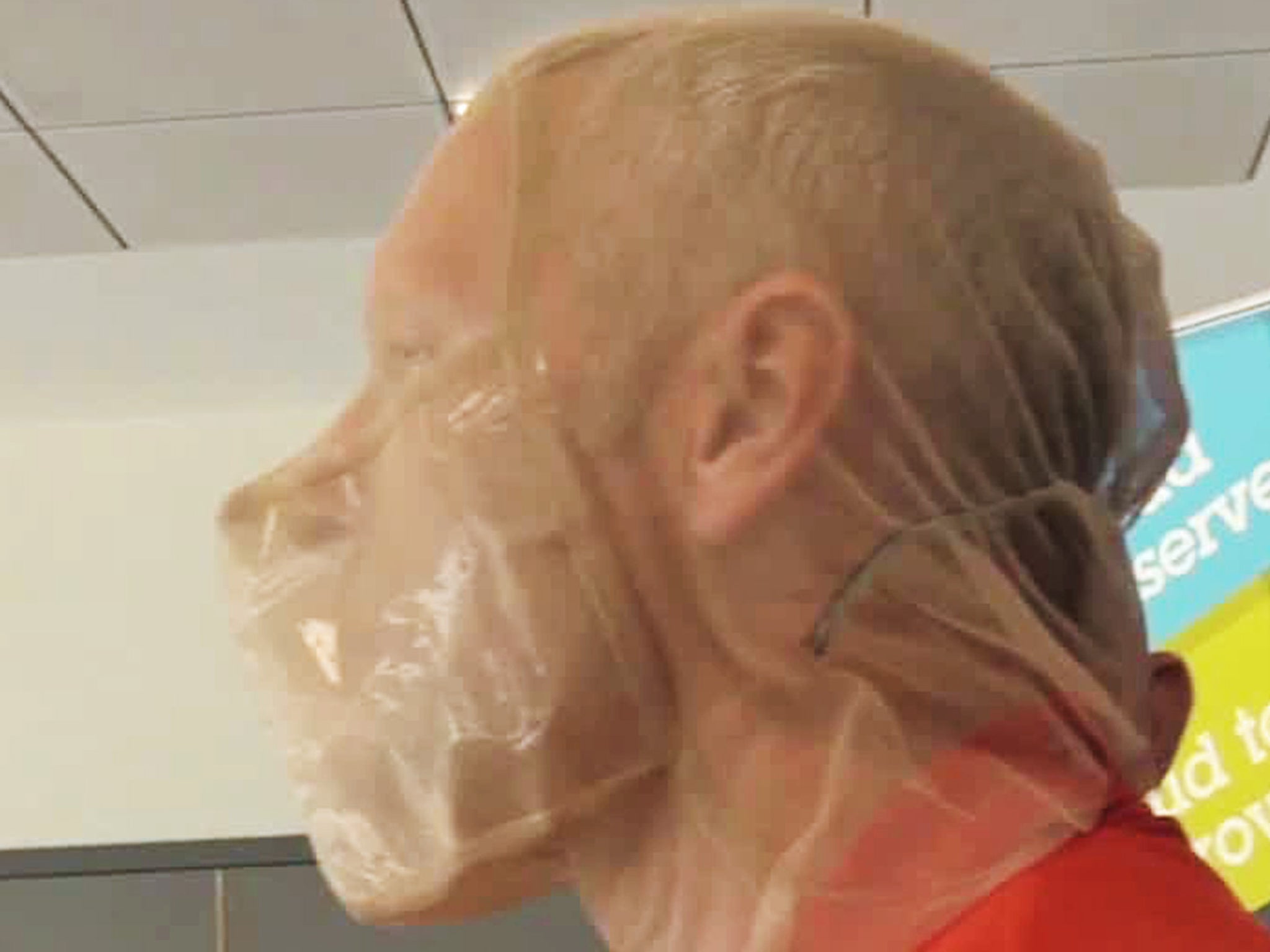Police may increase controversial use of Tasers and spit hoods after safety review
Four in five officers say they have been attacked in survey, including one third in past year

Police may increase the use of Tasers and controversial “spit hoods” after a rise in reported assaults on officers in England and Wales.
A review by the National Police Chiefs’ Council (NPCC) said that all regional chief constables must consider “increasing the availability of Taser, body armour, spit and bite guards, protective gloves and high-visibility clothing to proportionate levels”.
Spit hoods have been used on several people who have died in police custody in both Britain and the US, while footage of their use in public in the UK has provoked outrage.
There is also concern about the disproportionate use of Tasers against black suspects, and safety warnings over a new and more powerful model being made available to forces.
The NPCC said it had also commissioned research to examine the causes of racial disparity in the use of Taser.
Amnesty International UK said that although Tasers can prevent injury and loss of life, “it can’t be stressed enough that they are potentially lethal weapons”.
Oliver Feeley-Sprague, a member of the independent advisory group to the NPCC lead on Tasers, said: “Tasers are linked to hundreds of deaths in the USA and a growing number in Britain, and we’ve always said that UK police forces needed to restrict their use to highly-trained specialist officers.”
Police officers must undergo training before being issued with a Taser and are not allowed to use them unless they meet requirements.
A major survey of more than 40,000 police officers and staff in England and Wales, thought to be the biggest of its kind, found that three quarters of police officers want to deploy with Taser every day.
Nearly all officers said they thought more frontline staff in their force should be given the weapons, while similar proportions said they should all at least have the option of carrying stun guns.
Around three in five of those surveyed - 61 per cent - said that all frontline officers should be armed with Tasers.

Martin Hewitt, chair of the NPCC, said they were not “the answer to all violent and threatening situations”.
“In this review, we have followed the evidence, listened to the concerns of those within the service, and heard the views of the public,” he added.
”The review and the breadth of its recommendations show that there is no one piece of equipment that is the answer to all violent and threatening situations. Instead, chief constables have agreed a broad package of measures that will significantly enhance the safety of our brave and hard-working front line.“
Kent chief constable Alan Pughsley, who is the National Police Chiefs Council (NPCC) lead on officer safety, stressed that Tasers had “drawbacks”.
“They are fallible and they sometimes do not achieve operational intent,” he told a press conference on Wednesday.
“They can sometimes not work, leading to injuries to the officers, the public and the subject.
“It should not be viewed as a guarantee of operational safety and officers should not become over-reliant on them. Verbal conflict management and other skills are vitally important.”
The review cited research by the College of Policing and the University of Exeter that suggested that drawing a Taser might act as a deterrent to suspects.
It found that the odds of officers being assaulted were lowered when a Taser was drawn, but increased when it was discharged.

The number of recorded attacks on police officers has risen in the past five years, and the latest figures show that assaults on emergency workers rose almost a third in July, compared with the same period last year.
Mr Hewitt admitted that police leaders had “pushed very hard for effective reporting” by officers, which may have contributed to the rise.
“In the majority of cases there won’t be a physical injury, it will be some other form of assault,” he added.
The dramatic rise in recent months is believed to have been largely caused by deliberate spitting or coughing by people claiming to have coronavirus, which is recorded as assault.
In the survey, 88 per cent of officers said they had been assaulted during their career, with 39 per cent having been attacked in the past year.
The NPCC called for a number of legal changes, including the creation of a specific offence of targeting an officer with a vehicle, tighter laws around the possession of ammonia and similar corrosive liquids.
It also called for spitting and hate crimes to be considered as aggravating factors when suspects are brought to court for attacking officers.
The College of Policing said it would be introducing a “national curriculum” for safety training to improve consistency between different forces.
Che Donald, vice chairman of the Police Federation of England and Wales, which represents more than 120,000 rank-and-file officers, said: ”Chief officers must now take swift action to implement all immediately, so they are meaningful, make a tangible difference and are directly felt by officers on the ground.
“This review must not become just another door stop and be forgotten about a year down the line. That would mean letting down my colleagues even further.
”Along with the majority of the public, the federation is appalled by the atrocious levels of violence colleagues have faced recently and has been demanding action.“
The government is currently consulting on doubling the maximum sentence for assaulting emergency workers.
Priti Patel, the home secretary, said: “It is without doubt that our brave police do one of the most difficult jobs out there, putting their lives on the line and confronting violent situations every day to keep the public safe.
“The increase in assaults on these brave men and women is simply unacceptable.”
Join our commenting forum
Join thought-provoking conversations, follow other Independent readers and see their replies
Comments
Bookmark popover
Removed from bookmarks